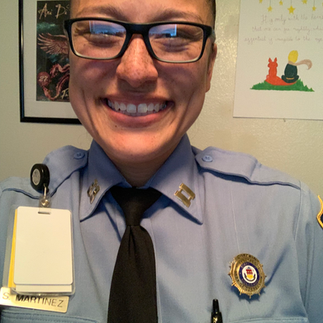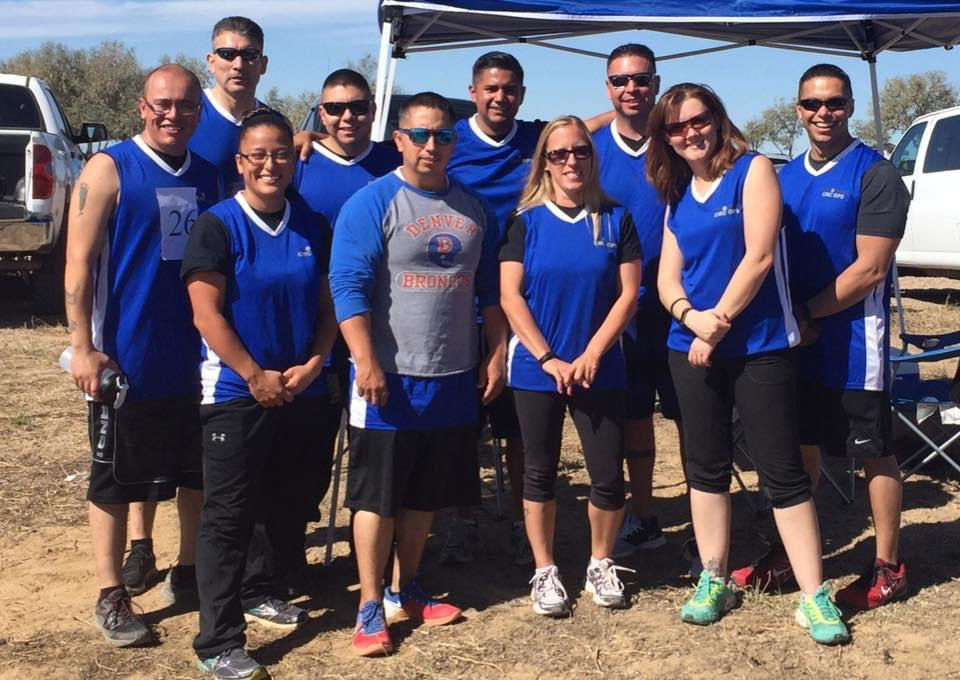The Unbreakable Bonds of Female Correctional Officers: Building a Family Behind Bars
- Stephanie Martinez
- Dec 22, 2024
- 3 min read
Being a correctional officer is much more than a job; it is a calling that demands commitment, integrity, and resilience. At just 22 years old, I stepped into a world many see only through screens—a world where real fears and challenges are confined behind razor wire and steel doors. Entering this environment kicked off my career, where I learned how to manage and interact with offenders in the prison system effectively.
My initial training lasted only five weeks, but it was intense, focusing on verbal and physical management techniques. A striking warning echoed throughout this training: "Never establish a relationship with an offender." At first, this seemed obvious—both unprofessional and against the law. However, the emphasis on this caution made me wonder why it was so heavily stressed for female officers. Why was this a central component of our training?
One year into my career, the consequences of inappropriate relationships became painfully clear. Five female staff from my facility were terminated for engaging in relationships with offenders. This was not an isolated incident; reports indicated that similar issues surfaced in facilities across the country, affecting hundreds of employees annually. In fact, a 2019 study found that 17% of correctional officers faced repercussions due to policy violations regarding offender relations.
As a female correctional officer in a male-dominated field, I quickly discovered the unique challenges that came with this role. The risk of manipulation was always present, and certain interactions could lead to misinterpretations. Yet, through mentorship and camaraderie with my fellow female officers, I learned to navigate this complex environment. Together, we supported each other through the myriad of challenges that arose behind those walls.
Ironically, working with offenders gave me a heightened sense of security. We are the ones who ensure that society can rest a little easier, knowing individuals who may cause harm are safely locked away. This responsibility is profound and underscores the importance of our role.
Developing strong interpersonal skills within the facility became essential. I learned that establishing respectful relationships could defuse potentially volatile situations. Advice from experienced colleagues, especially the supportive women around me, proved invaluable. They taught me to balance assertiveness with empathy, helping me navigate daily challenges that seemed overwhelming at times. We often shared our fears and victories, plotting success within an environment that often felt hostile.
Despite various incidents that made headlines or challenged our work community, my commitment never wavered. Each day reminded me why I chose this path: to create a safe environment for both staff and inmates. Conversations around rehabilitation versus punishment became central to our work.
In a 2018 report from Baltimore focusing on female correctional officers, insights emphasized the benefits of mentorship in this challenging environment. Not only did these findings validate our experiences, but they also highlighted the importance of shared resilience among women in the field.
Gender roles within correctional facilities present distinct challenges. Despite the warnings and biases we faced, empowering one another became vital. As a collective voice, female correctional officers in my facility provided mutual encouragement even when external forces worked against us.
My journey, though challenging, has built resilience, supported by a network of inspiring women. These challenges, especially for women, should empower future generations. With support from fellow female correctional officers, I’ve embraced my role, helping women recognize their worth and potential.
Being a female correctional officer has been rewarding, with the critical responsibility of confining offenders to prevent harm. Our work safeguards society and offers healing and rehabilitation opportunities for inmates and the community. Female correctional officers positively impact lives and deserve acknowledgment and celebration.
As I embark on this transformative journey, I am deeply grateful for how my career change enhances our community’s safety and well-being. It is a privilege to contribute to something greater, fostering security and hope. Together, we can show that a fulfilling career can uplift lives and our community.
I want to express my sincere thanks to the correctional officers who have supported me throughout this journey. Your guidance has shaped my identity and fueled my passion. I will always carry your kindness and wisdom with me, and I am forever grateful.








コメント